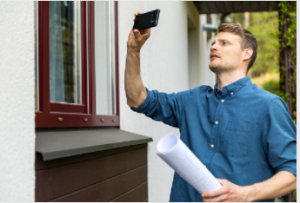What Should Be Covered By a Building Inspection?
A building inspector is a qualified individual employed either by a local government, state or county and is generally certified in one or more fields relating to building inspection, thereby qualifying him/her to make an informed professional judgment regarding whether a building is meeting building code standards. The building inspector is an individual who is licensed by the relevant state body to practice as such. The basic qualifications of a building inspector in Melbourne are as follows; master’s degree in civil engineering, three years experience as a qualified building inspector in two different structures, and two years experience as a qualified building inspector in one structure only. Generally, building inspections are performed for developers, insurers, tenants, and other parties.
 The main work areas of a building inspector include; inspect structures to detect defects in materials used, systems used to heat or cool a building and electrical systems to detect any leakage or malfunctioning of a heating or cooling system. A structural examination is also included in the work area. An inspection of mechanical equipment such as boilers, heaters, refrigerators, air conditioning systems, electrical machinery, pumps and motors will also be included. The building inspector is also responsible for advising the public and other agencies relating to building maintenance, safety and electrical issues.
The main work areas of a building inspector include; inspect structures to detect defects in materials used, systems used to heat or cool a building and electrical systems to detect any leakage or malfunctioning of a heating or cooling system. A structural examination is also included in the work area. An inspection of mechanical equipment such as boilers, heaters, refrigerators, air conditioning systems, electrical machinery, pumps and motors will also be included. The building inspector is also responsible for advising the public and other agencies relating to building maintenance, safety and electrical issues.
Most construction companies and other building contractors have a team of structural engineers and building inspectors. A qualified structural engineer must be knowledgeable in construction and building science to perform the necessary building inspections. The purpose of the inspections is to discover any flaws and determine the suitability of a structure for its intended use. For example, a building inspector in Melbourne may find out that a drain pipe is leaking, causing a major leak in the basement that could potentially cause damage to the adjacent building. Such a flaw could cause damage to personal property, and worst case, it can even result in death. Therefore the importance of good structural design is of utmost importance to ensure the security of the public and property.
Other than inspecting for defects, the building inspector also checks the general condition of the building and property report. It includes inspecting the plumbing, including any leaks, repairing any leaking plumbing and checking for any crack or other damage to the walls or floors. Cracks or leaks are the most noticeable signs of potential problems and are often the cause of major problems. To understand what a building inspector is looking for, check out any home that has just been constructed and note down the things that the contractor checked over as part of the building inspection.
Each state has its own set of building codes which are followed closely. In addition, the International Code Council has created a list of recommended practices that all states must comply with. If your local or state building codes are not compliant with these recommendations, then it would be advisable to speak to a professional building inspector to see what suggestions may be able to be made concerning the compliance of the building.
The inspection report will also include a recommendation concerning any future changes to the building in many cases. These recommendations can be major such as roofing or electrical work but can be as simple as adding a new door or window. If you are making any changes to the structure of the building, you should contact the inspector to make sure that they are happy with the proposed changes. Also, it is important to contact the building inspector in Melbourne as soon as possible after the inspection to ensure that they are recording all relevant information and aware of all relevant facts that might impact the outcome of the work. Any information must be recorded, and this should be done at the earliest opportunity to ensure that there are no problems later on.